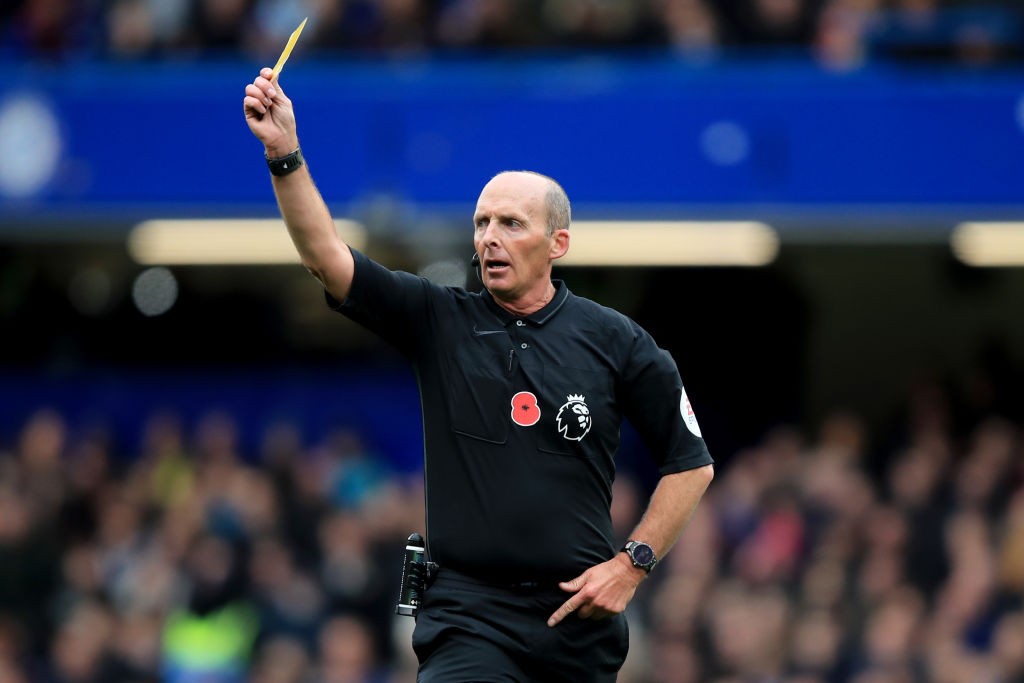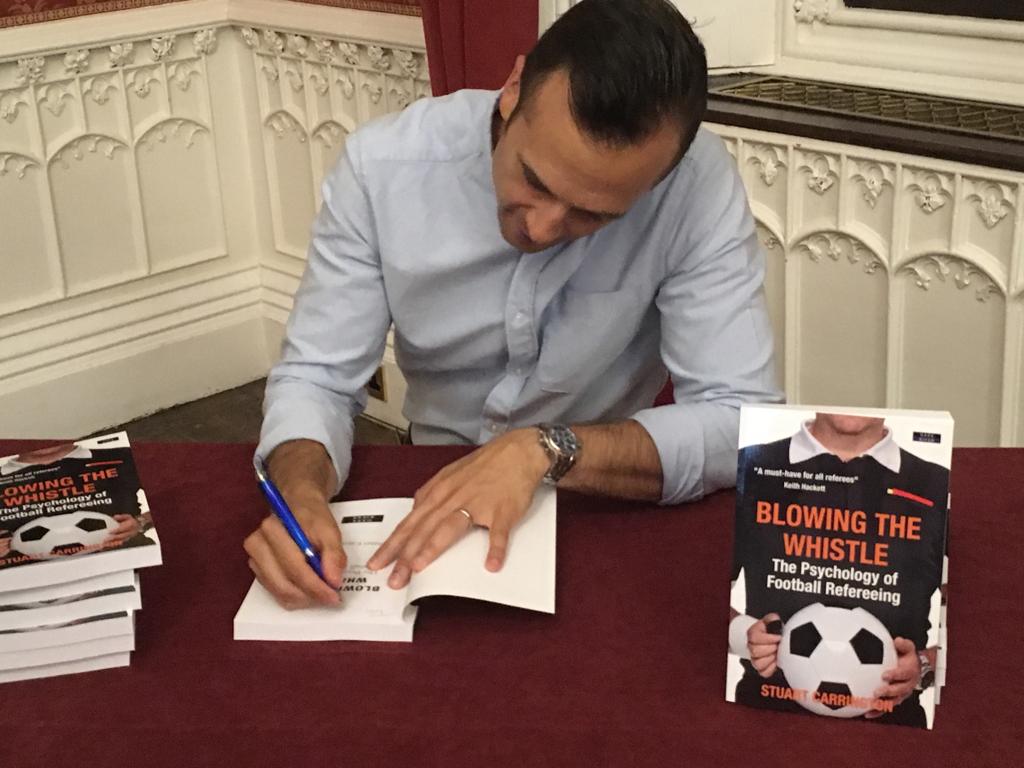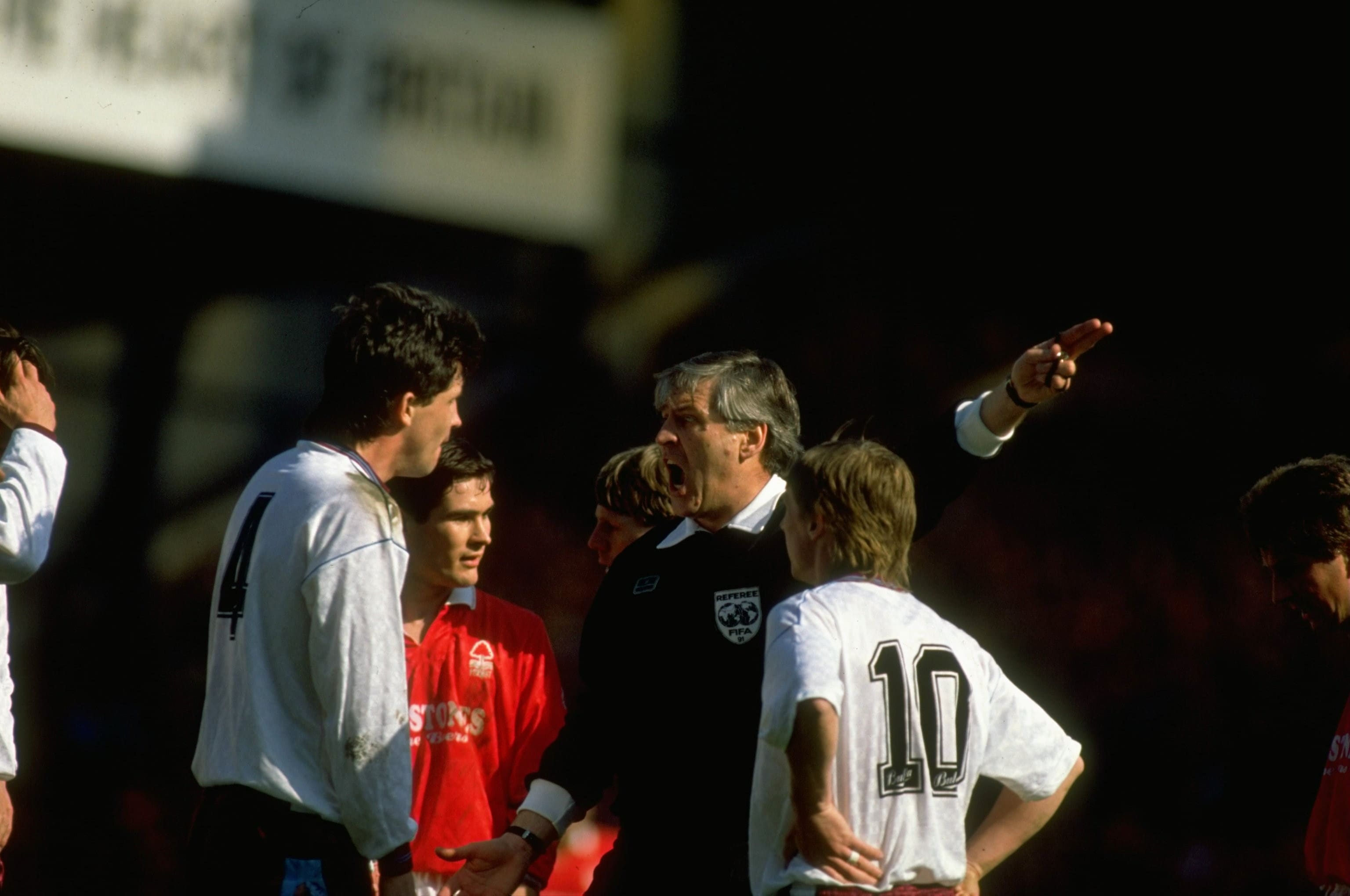Blowing the Whistle: The Psychology of Football Refereeing – Stuart Carrington’s three-part delivery on everything fans and managers need to know about referees

In his book Blowing the Whistle: The Psychology of Football Refereeing, Sports Science lecturer turned referee Stuart Carrington has delved deep into the various mental aspects that go into becoming a football official.
Not the most popular in the terraces and usually reluctant from speaking to the media, nobody quite knows what it takes to be a football official, be it at the top level or further down the league pyramid.
The implementation of the Video Assistant Referee (VAR) in the Premier League has got everyone from ex-players to turnstile operators talking about the role of the match officials: and most people are not happy with a number of decisions made within 90 minutes of play.
However, Carrington, through his book, which was mainly written before VAR in the Premier League dominated back pages every weekend, has provided facts stating that referees actually get most of their decisions right.
In many ways, the book sends a message to fans, managers, and players to empathise with referees and understand how difficult their job on the field of play is. It may be easy to point fingers after a poor defeat, but even with the assistance of technology, many continue to be unhappy when decisions go against their side.

This book is, in no way, a 257-paged sympathetic dossier written to make fans hang posters of their beloved referees on their bedroom walls, but to make them aware of what it feels like to be out there following the ball from start to finish, as well as the preparation and years of hard work needed to reach the top.
Tactfully, Carrington has split his book into three different parts where he discusses the psychological influences that impact referees, the individual differences that often lead to different decisions being made and practical suggestions he expects officials to apply in order to minimalise their margin for error.
Part one focuses on how big crowds have often had an effect on referees favouring the home team and the impact of a positive or negative reputation before making certain game-changing calls. Due to prowess in the field of psychology, he digs deep into cognition, Schema Theory, and the Halo Effect – providing readers with suitable graphical representations when required.
In the second section, Carrington highlights the individual personalities of referees and the motivation that goes behind them taking up the profession. He refers to how they cope with the stress of making dicey decisions, the way they regulate their emotions and whether or not they may be perceived as arrogant by people who don’t know them personally.

Lastly, he offers suggestions to current and aspiring football referees on how they can prepare better for games by recommending a four-step guide: Physiological, technical, tactical and mental planning. He also lists six areas in which the FA can aid the match officials as the physical and verbal attacks on them continue to rise.
While the book covers nearly all aspects of modern-day officiating, it does not speak too much about VAR. Even before it came into the Premier League, it was being talked about in other leagues and also in the 2018 World Cup and the Champions League season that followed.
Carrington is aware of this and stated that his second book will focus on VAR and is expected to include opinions from a number of current and ex-referees.
Blowing the Whistle also talks about the challenges female referees are facing today and how difficult it is for them to fit into what is already an unpopular position to be in. It cites examples of numerous sexist instances they’ve undergone and how a few women have completely stopped refereeing because of the hooliganism that is still prevalent in football.
Keith Hackett, who refereed in the Premier League from 1992-94, has been interviewed in great detail in the book and his experiences have been quoted in a number of chapters. He’s also mentioned that the book is a “must have” for referees all around the world.

Listening to Hackett’s experiences may have refreshed fans’ memories from the ‘90s, but no modern-day ex-referee has gone on record in the book to speak about these issues. Howard Webb, Mark Halsey, and Graham Poll have written autobiographies after retiring, and exclusive interviews with them would undoubtedly have added value to the book based on referees of this generation.
Being the voice of the voiceless, Carrington may have paved the way for more referees to be vocal and could even give the FA a few things to think about in terms of how they deal with certain issues going forward.
Not only referees, but anyone with a keen interest in football, psychology or both should enjoy reading this literary spectacle by the St. Mary’s University lecturer.
Sports Gazette Rating: 8.5/10
Blowing the Whistle: The Psychology of Football Refereeing by Stuart Carrington is available to buy on Amazon and WHSmith.
–
For more on this subject, watch Stuart Carrington sit down with Sports Gazette to explain his motivation behind becoming a referee, how he plans to juggle his teaching career, and the challenges faced by referees at all levels.